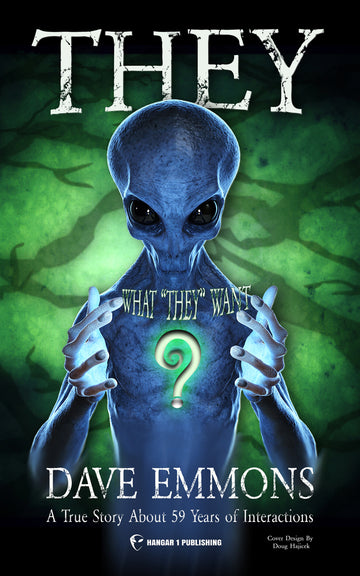Extraterrestrial Diplomacy: Preparing for Cosmic Contact

By Gabriel Chen, Ufologist
When the alien probe finally arrives in our solar system, who will speak for Earth? Is it the Secretary-General of the United Nations? The President of the United States? A panel of scientists? Or will some rogue nation attempt unilateral first contact, potentially endangering humanity's cosmic future?
These questions aren't science fiction hypotheticals anymore. They represent a growing field known as extraterrestrial diplomacy—a discipline preparing humanity for what could be the most consequential encounter in our species' history.
"One way or another, contact with aliens may be imminent," warns John Gertz, former chairman of the SETI Institute. "There has been no planning among nations for the aftermath of a first detection."
This preparedness gap should concern us all. While our telescopes scan the cosmos with increasing sophistication and our understanding of potentially habitable exoplanets grows, our diplomatic readiness remains startlingly primitive. We're like teenagers throwing messages in bottles into the cosmic ocean without considering what happens if something writes back.
The Beginnings of Cosmic Outreach
Humanity has been reaching out to the stars for decades. The 1974 Arecibo message, a simple binary transmission aimed at the globular star cluster M13, represented our first deliberate attempt to announce our presence. The Pioneer plaques (1972 and 1973) and Voyager Golden Records (1977) followed—physical calling cards carrying information about Earth and humanity on spacecraft headed toward interstellar space.
These early efforts were more symbolic than practical. The Arecibo message will take approximately 25,000 years to reach its destination, and the Voyager probes won't approach another star system for tens of thousands of years. Yet they established an important precedent: humanity wasn't just listening—we were speaking.
"What's interesting about these early cosmic messages is how they reflect our self-image at particular moments in history," explains Dr. Douglas Vakoch, president of METI International (Messaging Extraterrestrial Intelligence). "The Voyager Record presents a carefully curated portrait of humanity—our science, our music, our diversity. It says more about how we wanted to be perceived than anything else."
From Science Fiction to Science Fact
The concept of extraterrestrial diplomacy has migrated from sci-fi novels and films into academic institutions and government agencies. Turkey's Akdeniz University made headlines when it included "Ufology and Exopolitics" in its curriculum, focusing specifically on preparing students for potential contact.
"We believe representatives from the world and extraterrestrial civilizations will soon be making official contact with each other," said Erhan Kolbaşı, deputy chair of the Sirius UFO Space Sciences Research Center at the university. "We think they will be in an open and mass contact."
This curriculum specifically addresses exopolitics, which "focuses on sources of information and methodology, the history of cover-up of knowledge on extraterrestrial beings, preparations to open contact, and galactic diplomacy." Whether you find this prescient or premature, it represents the first formal educational program explicitly addressing extraterrestrial diplomacy.
Meanwhile, at the State Department, officials recognize the need for diplomatic training in space-related issues. In a recent article in State Magazine, a Foreign Service Officer noted: "The Department of State must have professionals who understand the enduring interests, policies and procedures of the United Nations and NATO, as well as NASA and the Department of Defense, on space issues."
When the Call Comes: First Contact Protocols
So what happens if we detect a signal from an extraterrestrial civilization tomorrow? There are protocols—just not legally binding ones.
The "Declaration of Principles for Activities Following the Detection of Extraterrestrial Intelligence," created by the SETI Permanent Committee of the International Academy of Astronautics and endorsed by most researchers involved in SETI, outlines basic procedures:
- Verify the signal is genuinely of intelligent origin
- Inform other signatories and national authorities
- Notify the international astronomical community
- Make a public announcement after confirmation
- Protect and share the data widely
- Don't respond without international agreement
This last point is particularly contentious. As Paul Davies, a member of the SETI Post-Detection Taskgroup, has pointed out, these protocols aren't law. They're essentially gentlemen's agreements that ambitious scientists, corporations, or nations could easily ignore in the excitement or confusion following detection.
"In reality, astronomers would put the advancement of their careers over the word of a protocol that isn't part of national or international law," Davies observes.
The potential consequences of this gap are sobering. As Gertz warns: "War could break out on Earth as countries scramble to monopolize the technological spoils of interstellar relations with an advanced alien civilization. Or worse, war could break out between humanity and E.T. after one country or another, acting alone, botches interstellar negotiations."
The Challenge of Cosmic Communication
If establishing who speaks for Earth is difficult, figuring out what to say—and how to say it—presents even greater challenges.
The 2016 film "Arrival" captured this brilliantly, depicting linguist Louise Banks' struggles to communicate with aliens whose language is "semasiographic" and non-linear—representing meaning but not sound, and operating outside our sequential perception of time.
"The Sapir-Whorf hypothesis suggests that language shapes cognition," explains Dr. Seth Shostak of the SETI Institute. "Learning an alien language might literally rewire human brains and worldviews. It's not just about learning vocabulary—it's about potentially adopting entirely new ways of thinking."
Mathematics is often suggested as a potential universal language, but even this assumes aliens perceive reality through similar cognitive frameworks. As science fiction author Ted Chiang (whose story "Story of Your Life" inspired "Arrival") points out: "What if aliens don't count discrete objects the way we do? What if they perceive the world as continuous processes rather than separate things?"
These aren't abstract philosophical questions—they could determine whether first contact leads to mutual understanding or catastrophic miscommunication.
Consider China's near-declaration of war against the aliens in "Arrival" after misinterpreting the word "weapon" as hostile, when it actually referred to the "gift" of the aliens' language. Fiction, yes, but the scenario illustrates how easily intercultural—or in this case, interspecies—communication can go awry.
Three Types of Cosmic Estrangement
Diplomat and theorist James Der Derian describes diplomacy as "the mediation of estrangement"—the work of building bridges between alienated parties. In extraterrestrial diplomacy, we can identify three distinct forms of estrangement that need mediation:
- Inter-state estrangement: The tensions between Earth's nations in response to contact
- Inter-species estrangement: The fundamental alien-ness between humanity and extraterrestrials
- Intra-species estrangement: Divisions within humanity about how to interpret and respond to contact
"In each of these types of estrangement, we can observe similar diplomatic roles," notes Constantinou, a scholar in diplomatic studies. "Representation of entities larger than oneself, building bridges of understanding, creating frameworks for cooperation despite differences."
This multi-dimensional estrangement explains why extraterrestrial diplomacy requires such broad expertise. It's not just about communicating with aliens—it's about preventing human civilization from fracturing under the stress of contact.
Who Speaks for Earth?
The question of representation—who legitimately speaks for humanity—emerges as perhaps the most pressing practical problem in extraterrestrial diplomacy.
Several sources suggest the United Nations Secretary-General as humanity's default representative. Article XI of the Outer Space Treaty is cited as implicitly recognizing this role:
"States Parties to the Treaty conducting activities in outer space... agree to inform the Secretary-General of the United Nations... On receiving the said information, the Secretary-General of the United Nations should be prepared to disseminate it immediately and effectively."
But would all nations accept UN leadership during such a momentous event? China and Russia might have different ideas. So might the United States or private entities like SpaceX, which increasingly operate beyond traditional state control.
The E.T. Embassy project has drafted an "Optional Protocol Concerning Embassies for Extraterrestrials" as a proposed addition to the Vienna Convention on Diplomatic Relations. This would provide internationally agreed diplomatic arrangements for official contacts, including diplomatic immunity for extraterrestrial visitors.
Meanwhile, the Alliance for Extraterrestrial Diplomatic Contact, a network of "diplomats, politicians, government officials, experts in extraterrestrial affairs, and interested people," aims to establish diplomatic frameworks for potential contact.
These initiatives highlight growing recognition of the representation gap, but they remain far from universal adoption.
Ethical Frameworks for Cosmic Relations
If an extraterrestrial being landed tomorrow, what rights would they have? The answer is troubling: very few, according to current legal frameworks.
"An extraterrestrial arriving on Earth might only have the protection of animal cruelty statutes," notes legal scholar Robert Freitas. "Much as various classes of human being, such as women, children, and indigenous people, were initially denied human rights, so might extraterrestrial beings, who could therefore be legally owned and killed."
Some ethicists argue for expanding "human rights" into "sentient rights" that would cover intelligent non-human entities. But defining sentience or intelligence across species lines presents enormous challenges.
Similarly, information ethics poses complex questions. If aliens share advanced technology, who owns it? How should it be distributed? Could it be weaponized? Paolo Musso warns that extraterrestrials "could send (unfiltered) information that could enable or facilitate human civilization to destroy itself," such as powerful computer viruses or knowledge to build extremely potent weapons.
Yet according to Musso, computer viruses would be "nearly impossible unless extraterrestrials possess detailed knowledge of human computer architectures," suggesting some natural barriers might exist against certain forms of harmful information transfer.
Cooperative or Confrontational: Approaches to Advanced Civilizations
How should humanity approach potential contact with civilizations that might be millions or billions of years more advanced than our own? Perspectives range from optimistic to deeply pessimistic.
Allen Tough identifies three approaches a friendly civilization might take toward humanity:
- Intervention only to avert catastrophe
- Advice and action with consent
- Forcible corrective action for humanity's own good
But what if they're not friendly? Stephen Hawking famously warned against broadcasting our location, comparing potential contact to Columbus arriving in the Americas—"which didn't turn out well for the Native Americans."
Douglas Vakoch counters that "any civilization that has the ability to travel between the stars can already pick up our accidental radio and TV leakage," suggesting that silence may no longer be an option.
Perhaps most chilling is the "Dark Forest Theory" from Liu Cixin's science fiction novel, which suggests that all intelligent life hides out of necessity because "the safest option for any species is to annihilate other life forms before they have a chance to do the same."
This theory, rooted in offensive realism, proposes that in a universe of limited resources where civilizations cannot know others' intentions, preemptive destruction becomes the rational choice—a cosmic version of the prisoner's dilemma where everyone chooses to defect.
Religious and Cultural Impact
How would confirmation of extraterrestrial intelligence affect human religion and culture? Contrary to popular assumptions, research suggests most religious believers don't see a fundamental conflict.
A study by Ted Peters showed that only a small percentage of religious leaders are concerned that extraterrestrial contact might contradict the views of their adherents. Gabriel Funes, chief astronomer of the Vatican Observatory, has stated that the Catholic Church would likely "welcome extraterrestrial visitors warmly."
Nevertheless, the "mediocrity principle"—which claims "there is nothing special about Earth's status or position in the Universe"—could challenge Abrahamic religions that "teach that human beings are purposefully created by God and occupy a privileged position."
Beyond religion, the psychological impact could be profound. Major John R. King identifies potential sociological consequences including:
- Initial shock and consternation
- Loss or reduction of ego
- Modification of human values
- Reevaluation of religions
As Ronald Reagan once observed: "I occasionally think how quickly our differences worldwide would vanish if we were facing an alien threat from outside this world." Whether through fear or wonder, contact could transform human self-perception and social priorities in unprecedented ways.
The Cosmic Diplomat: A New Profession
The challenges of extraterrestrial diplomacy demand a new kind of professional—one who combines traditional diplomatic skills with scientific knowledge, anthropological insight, linguistic innovation, and psychological resilience.
"The best model might be what Constantinou calls 'humanist diplomacy,'" suggests Dr. Heather Graham, an astrobiologist at NASA's Goddard Space Flight Center. "The cosmic diplomat needs to be a cross-cultural communicator who can interpret and represent the Other's knowledge back to humanity, not just push human agendas."
Educational pathways for this emerging profession are still developing. Beyond Turkey's pioneering program, specialized courses and simulations are appearing in diplomacy schools and astrobiology programs. The State Department article "Boosting Space Diplomacy at State" calls for more robust training programs, noting that "humanity's future in space presents the same challenges and opportunities for conflict or cooperation as in other domains, but the stakes will soon be far greater than ever before."
An article on "Future Trends in IT Careers in Extraterrestrial Diplomacy" even outlines specialized roles developing in this field, from space-based infrastructure specialists to experts in AI-facilitated cross-species communication.
Fiction Shapes Reality
Science fiction doesn't just reflect our ideas about alien contact—it actively shapes them. From "Star Trek's" optimistic Federation model to "The Dark Forest's" pessimistic realism, fictional portrayals influence both public expectations and actual protocol development.
"Arrival" has been particularly influential in diplomatic thinking, showcasing linguist Louise Banks as what Constantinou would call a "humanist diplomat"—someone who balances advocacy for humanity with true reflexivity and openness to the Other.
These fictional frameworks fill a vacuum in public understanding. A 2012 National Geographic survey found that 65% of Americans believed Obama would handle an alien invasion better than Romney—suggesting people think about these scenarios far more than policymakers might expect.
Taking Action Now
The emerging field of extraterrestrial diplomacy stands at a critical juncture. As our detection capabilities grow more sophisticated, the likelihood of discovering extraterrestrial intelligence increases—whether through radio signals, atmospheric biosignatures on exoplanets, or unexpected encounters in our own solar system.
Yet our diplomatic preparedness lags dangerously behind our technological reach. The window for developing robust international protocols, training specialized professionals, and building public resilience may be shorter than we think.
John Gertz's proposal for a "Treaty on Principles Governing the Activities of States in Humankind's Relations with Robotic or Biological Extraterrestrial Intelligence" represents one concrete step forward. George Profitiliotis' policy memo advocating "Anticipatory Science Diplomacy" through a UNCOPUOS Working Group offers another practical approach.
These initiatives may seem premature to some. But as Arthur C. Clarke famously observed, "Two possibilities exist: either we are alone in the Universe or we are not. Both are equally terrifying."
If we're not alone, the discovery could come tomorrow. And if that call from the cosmos arrives before we've decided who picks up the phone and what they'll say, humanity may find itself fumbling the most important conversation in our history.
From Bigfoot to UFOs: Hangar 1 Publishing Has You Covered!
Explore Untold Stories: Venture into the world of UFOs, cryptids, Bigfoot, and beyond. Every story is a journey into the extraordinary.
Immersive Book Technology: Experience real videos, sights, and sounds within our books. Its not just reading; its an adventure.


























